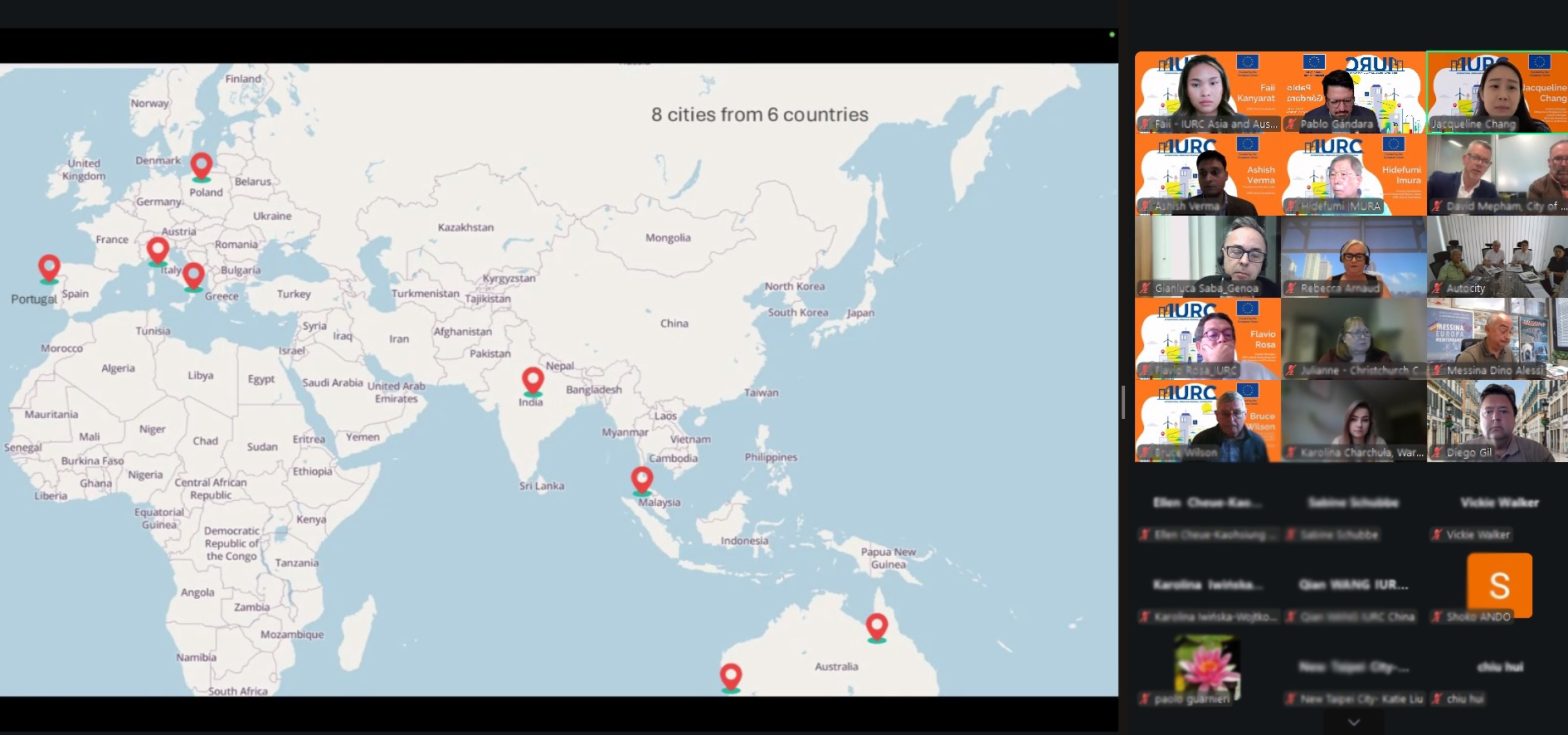The second and final session of the IURC Asia & Australasia Thematic Network on Strategic Sectors brought together 33 participants to explore innovative approaches in cultural heritage, mega-events, sustainable tourism, and city branding. Cities from Italy, Australia, Malaysia, and Poland shared their strategies, challenges, and opportunities, while also setting the stage for deeper collaboration at the upcoming Smart Cites Expo World Congress in Barcelona.
Opening and Context
The session was introduced by Mr. Pablo Gándara, Team Leader, who noted the upcoming meeting dedicated to regions. Moderation was then handed to Ms. Jacqueline Chang, who reviewed best practices from the previous session on 17 September and outlined the current cluster of eight cities from six countries.
Messina: Enhancing Heritage Tourism
Mr. Dino Alessi, representing the city of Messina (Italy), presented on the city’s tourism potential and challenges. Despite its rich cultural resources, Messina faces fragmented branding, low international visibility, and limited integration of heritage with local services.
Best practices showcased included:
- Heritage valorisation through the VisitMe platform, authentic storytelling, off-season tourism, and revitalization of village sites.
- Festivals and events such as maritime traditions and religious processions used as branding tools.
- Coastal and maritime tourism, with new initiatives along Messina’s shoreline.
- Digital innovation, including virtual tours and augmented reality storytelling.
- Community engagement, involving associations, schools, and universities in heritage awareness.
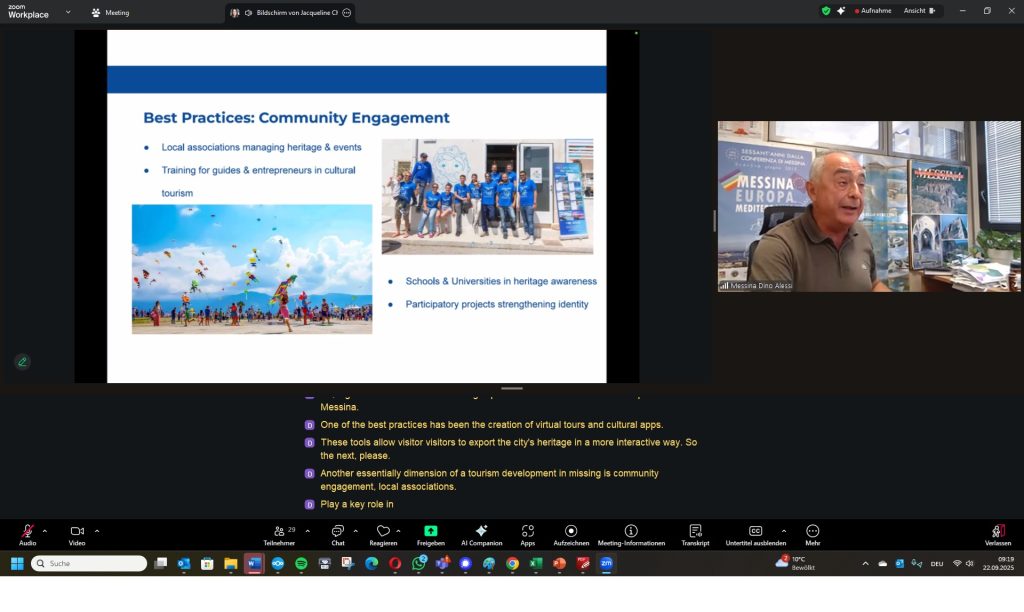
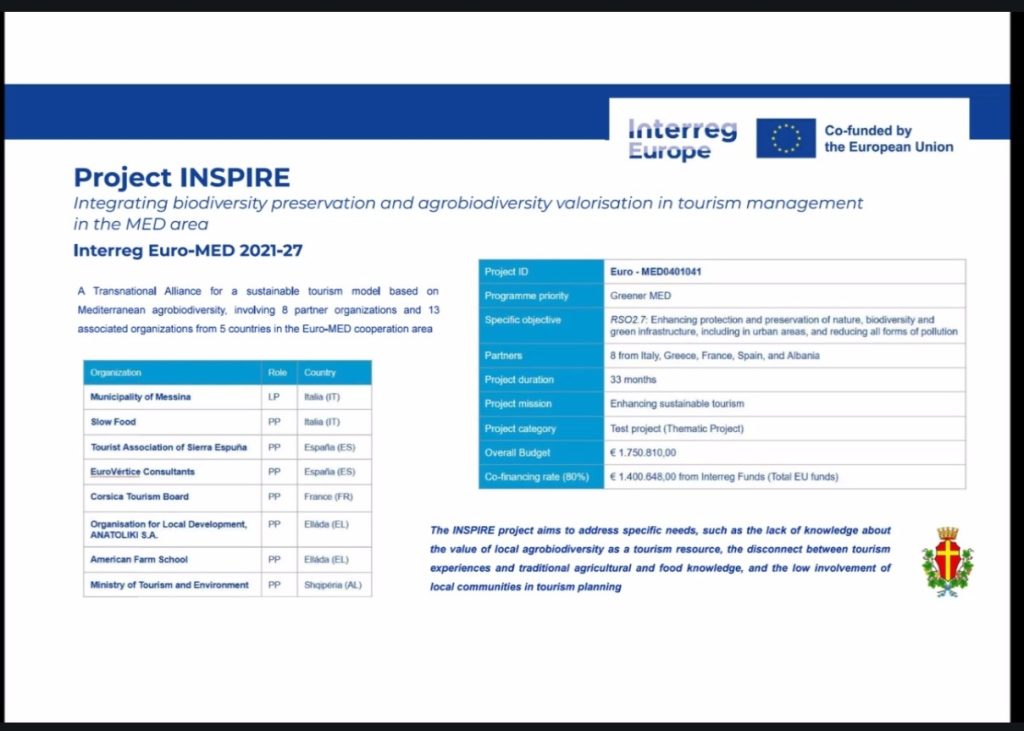
Messina is also active in EU cooperation projects such as Project INSPIRE, which has developed sustainable tourism models across five countries. The city expressed interest in learning from peers on branding strategies, managing tourist flows sustainably, and inclusive tourism models.
Brisbane: Preparing for the 2032 Olympics
Ms. Rebecca Arnaud, Manager of the 2032 Host City, outlined Brisbane’s preparations to host the Olympic and Paralympic Games. She highlighted the city’s strengths in innovation, lifestyle, sustainability, and community engagement, as well as its diverse economic portfolio ranging from transport and logistics to advanced manufacturing and health ecosystems.
Brisbane is committed to leveraging the Games to boost economic growth, improve infrastructure, and strengthen its global profile. Sustainability measures include a carbon budget and strong legacy planning. An interactive discussion explored Brisbane’s “green Olympics” initiatives and the city’s partnerships with academia and business.
The city looks forward to exchanging knowledge on legacy planning, growing its experience economy in the lead-up to 2032, and strengthening civic engagement, especially among youth.
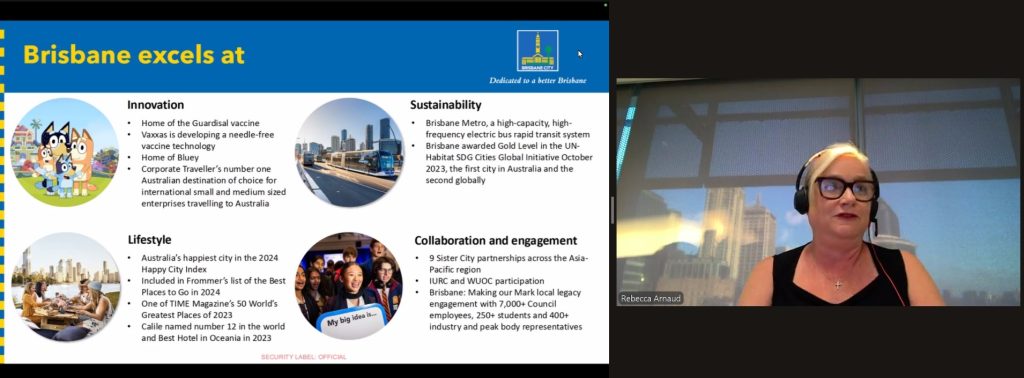
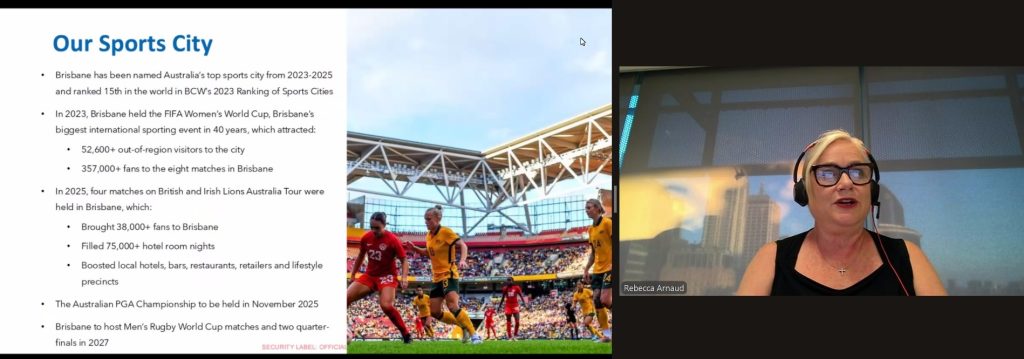
Seberang Perai: Revitalizing the Juru River
A joint presentation by Ms. Rachel The, City Councillor of Seberang Perai, and Mr. Gary Teoh, Managing Director of Auto-City Group, showcased the Juru River Ecotourism Project. This public-private-people partnership (PPPP) aims to revitalize the river and its habitats, create a sustainable urban green lung, and involve the community in eco-tourism.
Key elements included:
- Collaboration with the Malaysian Nature Society, University Science Malaysia, and University Malaysia Terengganu to research six habitats.
- Development of river cruises combining environmental education with cultural experiences.
- Community engagement through education programmes for families, youth, and tourists.
The initiative demonstrates the quadruple helix approach — bringing together public authorities, private business, academia, and civil society — and is already building momentum as a model for sustainable riverfront development.
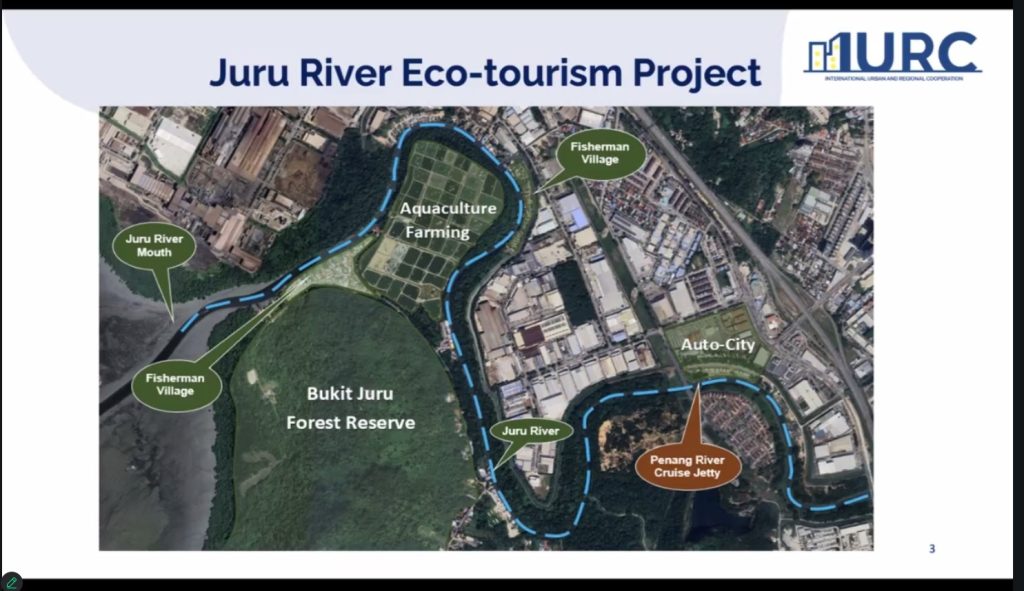
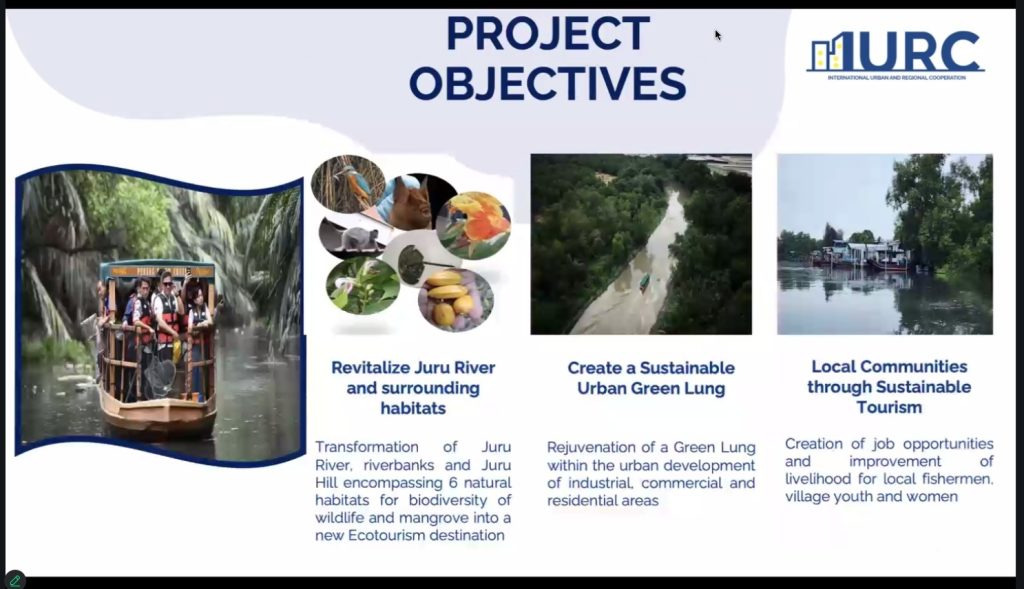
Warsaw: City Branding and Talent Attraction
Ms. Karolina Iwińska-Wojtkowska presented Warsaw’s strategy for economic growth and city branding. The Polish capital has transformed into a dynamic metropolis with modern infrastructure and a strong focus on quality of life.
Highlights included:
- Success in attracting global technology companies.
- An academic ecosystem of more than 250,000 students.
- Tourism development through business events and campaigns such as “Wall Warsaw.”
- Strong performance in smart city indices.
- Flagship projects for talent attraction and retention.
Warsaw is seeking to learn from peers on branding policies, talent retention strategies, media engagement, and the design of meaningful international events to strengthen its global positioning.
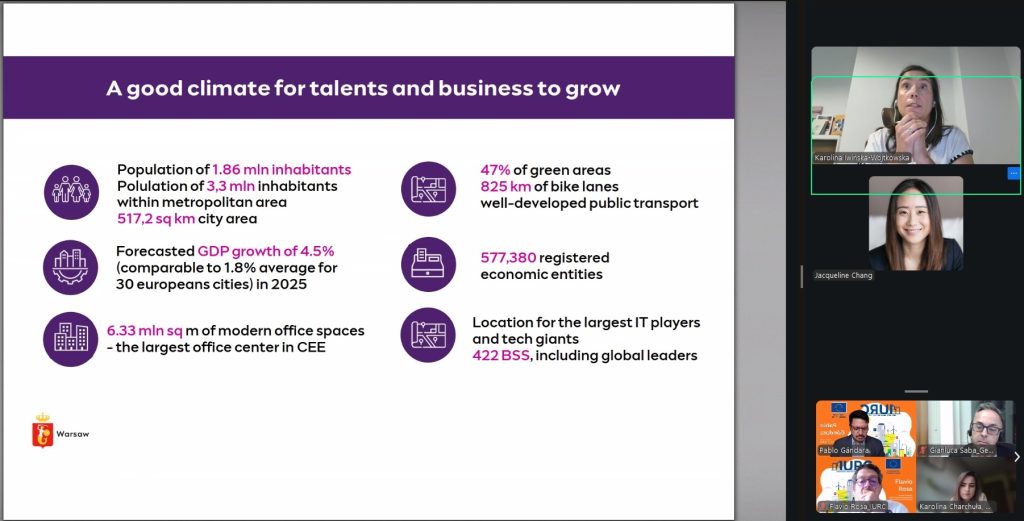
Recap and Closing Remarks
Ms. Jacqueline Chang concluded the webinar by summarizing keywords and best practices from both the 17 and 22 September sessions. She encouraged cities to continue discussions on sustainable and smart tourism and to prepare for in-person exchanges at the Smart Cites Expo World Congress in Barcelona.
She also introduced the Warsaw: The Explorer Series, a pocket guide for entrepreneurs, digital nomads, and startup talent that combines business insights with local lifestyle recommendations. Jacqueline noted that Warsaw could draw inspiration from Brisbane’s community-focused city branding, leveraging its academic and knowledge economy strengths while building a globally recognized identity.
Finally, participants were reminded to liaise with Ms. Kanyarat Aksorn regarding registration and logistics for Barcelona.
